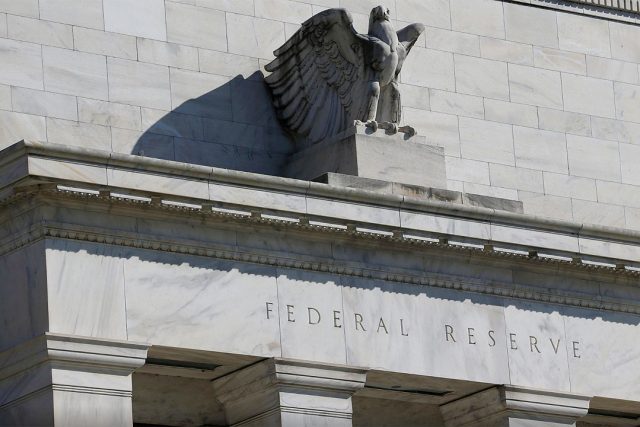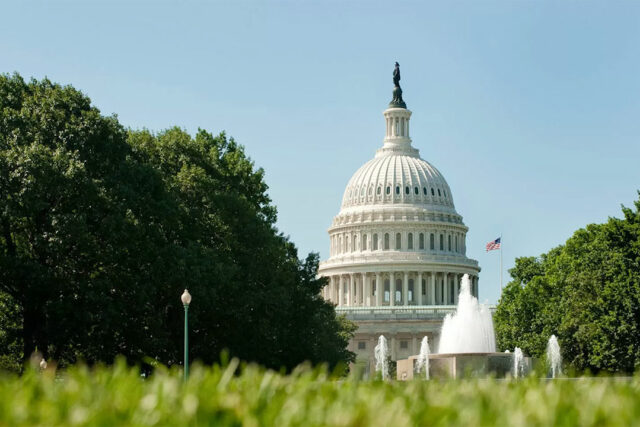BEIJING — When a Beijing-based military institute in September published a patent for a new high-performance chip, it offered a glimpse of China’s bid to remake the half-trillion dollar global chip market and withstand US sanctions.
The People’s Liberation Army’s Academy of Military Sciences had used an open-source standard known as RISC-V to reduce malfunctions in chips for cloud computing and smart cars, the patent filing shows.
RISC-V is an instruction set architecture, a computer language used to design anything from smartphone chips to advanced processors for artificial intelligence.
The most common standards are controlled by Western companies: x86, dominated by US firms Intel and Advanced Micro Devices, and Arm, developed by Britain’s Arm Holdings, owned by SoftBank Group.
US and UK export controls prevent the sale of only the most advanced x86 and Arm designs – which produce the highest-performance chips – to clients in China.
But as the US widens restrictions on China’s access to advanced semiconductors and chip-making equipment, the open-source nature of RISC-V has made it part of Beijing’s plan to curb its dependence on Western technology, although the emerging architecture accounts for a fraction of the chip market.
“The biggest advantage of the RISC-V architecture is that it is geopolitically neutral,” the Shanghai government’s Science and Technology Commission said in a report published in April.
Beijing and dozens of Chinese state entities and research institutes, many sanctioned by Washington, invested at least $50 million in projects involving RISC-V between 2018 and 2023, according to a Reuters review of over 100 Chinese-language academic articles, patents, government documents and tenders, as well as statements from research groups and companies.
While the figure is modest, recent RISC-V breakthroughs and applications in China, many with government funding, have raised Beijing’s hopes that the open-source standard could one day threaten the x86-Arm duopoly, according to state media. Intel and AMD did not respond to questions about the matter, while Arm declined to comment.
RISC-V chips made by Chinese firms and research institutes can now power self-driving cars, artificial-intelligence models and data-storage centres, according to two industry figures and the previously unreported documents.
The military science academy did not respond to a request for comment sent via China’s State Council.
GROWING MATURITY
Arm and x86 are closed architectures, meaning they are proprietary and charge users a license fee. Their outlines are thousands of pages long, with complex instructions and numerous incompatible versions that can only be modified by their developers.
RISC-V is free to use and has a simpler outline, often leading to more energy-efficient chips, and users can build atop the framework to suit their needs.
Half of the more than 10 billion RISC-V chips shipped globally by 2022 were made in China, the state-run China Daily reported in August. Bao Yungang, deputy director of China’s Institute of Computing Technology, told a chip conference last June that funding for RISC-V startups in China had reached at least $1.18 billion to that point.
“The RISC-V ecosystem in China is the most mature globally”, a result of the need of government and industry to develop technology that can circumvent US sanctions, said a sales representative from a Beijing-based company that develops RISC-V chips, who was not authorized to speak publicly.
Some 1,061 patents involving RISC-V were published in China last year, up from 10 in 2018, Anaqua’s AcclaimIP database shows. While the US saw a similar increase, 2,508 such patents have been published in China, to the US’s 2,018.
Chinese tech giants Alibaba and Huawei, neither of which responded to requests for comment, were the fourth- and fifth-largest filers.
Arm is the dominant architecture in China, so RISC-V is a long-term bet to insure Beijing against a scenario in which Arm is forced to not just halt licensing to Huawei, as it did temporarily in 2019, but to all Chinese companies.
While the performance of RISC-V chips lags Arm in complex computing tasks, the gap is closing as RISC-V startups proliferate and more tech companies invest in the open-source standard, said Richard Wawrzyniak, principal analyst at the SHD Group, a market research firm.
‘TRUE RISE TO POWER’
RISC-V technology emerged last decade from labs at the University of California, Berkeley.
A few months after Huawei was blacklisted by the Trump administration in May 2019, RISC-V International, a non-profit foundation that oversees development of the standard, moved its headquarters from Delaware to Switzerland.
Calista Redmond, CEO of RISC-V International, told Reuters the move was not to “circumvent any legal restriction by any government” but “to ensure continued ecosystem growth of the open standard for years to come”.
Still, the foundation says on its website that the move alleviated uncertainty as there was concern from the RISC-V community “across 2018-2019” related to the geopolitical landscape, without mentioning China.
Reuters reported in October that some US lawmakers were urging the Biden administration to impose export restrictions around RISC-V, a move that Redmond has said would slow the development of new and better chips.
The US Department of Commerce’s Bureau of Industry Security declined to comment.
For China, there has been a geopolitical incentive to invest in the emerging standard.
In 2019, researchers at the University of Electronic Science and Technology of China organized a seminar on how RISC-V could help China achieve tech self-sufficiency.
“Everyone agreed…if domestic chip systems want to get rid of the limitations of x86 and ARM architectures and realise a true rise to power, RISC-V will be the biggest opportunity,” says a summary of the seminar published on the university’s website.
Among recent breakthroughs in China, state-owned car maker Dongfeng Motor Corporation last year developed an automotive MCU chip, used to control the electronic systems of a car, using RISC-V.
Dongfeng and China’s Ministry of Science and Technology did not respond to requests for comment.
MILITARY INTEREST
Universities and research institutes linked to China’s military have also developed and promoted RISC-V in recent years, Reuters’ review found.
The PLA-run National University of Defense Technology was in the top 15 for RISC-V patents filed in China since 2018, according to AcclaimIP, as was Peng Cheng Laboratory, which has partnerships with at least two defence-related institutes.
At an academic conference in November 2022, researchers at Beihang University, whose scientists are involved in the development of Chinese military aircraft and missiles, presented the design for a RISC-V chip that processes radar signals.
The year prior, researchers at the Institute of Software at the Chinese Academy of Sciences (CAS), a state think tank, co-developed a RISC-V chip to prevent a type of cyberattack. The institute is a PLA supplier, government tenders show.
In May 2023, the CAS Institute of Computing Technology, which is under US sanctions, unveiled the second generation of “Xiangshan”, a RISC-V high-performance PC chip, and “Aolai”, a RISC-V operating system.
Interest from the Chinese institutes and universities, which did not respond to queries, echoes investment in RISC-V research labs and companies a decade ago by the U.S. government’s Defense Advanced Research Projects Agency.
An agency spokesperson said that while it did not directly fund the development of the RISC-V architecture, it funded efforts that used RISC-V to “create prototype chips and test research hypotheses in the interests of U.S. national security”.
Despite its promise, RISC-V so far has not broken x86 and Arm’s dominance. The SHD Group estimated that 1.9% of all system-on-a-chip units shipped in 2022 had a RISC-V processor.
But with demand for AI chips growing, RISC-V’s low cost, ease of customisation and energy efficiency have made it attractive to some chipmakers.
Original equipment manufacturers “want to develop highly customized cores. And RISC-V really fits that bill,” Ziad Asghar, Qualcomm’s senior vice president of product management, said in an interview published on the company’s website in September. — Reuters












